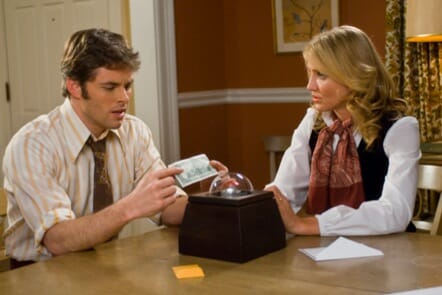The Box

Release Date: Nov. 6
Director: Richard Kelly
Writer: Richard Kelly (based on a short story by Richard Matheson)
Starring: Cameron Diaz, James Marsden, Frank Langella
Cinematographer: Steven B. Poster
Studio/Run Time: Warner Bros., 115 mins.
-

-

-

-

-

-

-

-

-

-

-

-

-

-

-

-

-

-

-

-

-

-

-

-

-

-

-

-

-

-

-

-

-

-

-

-

-

-

-

-








































